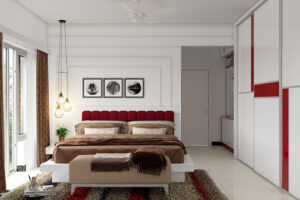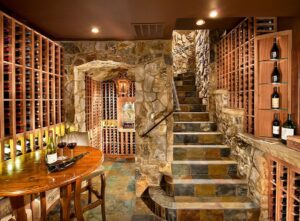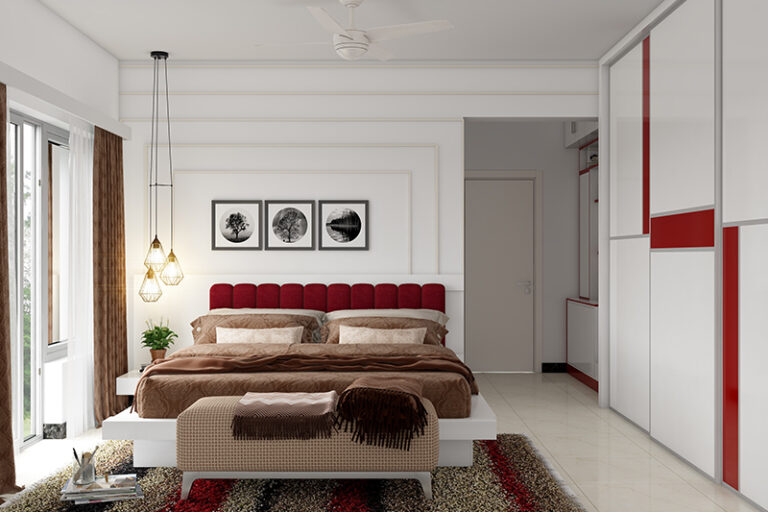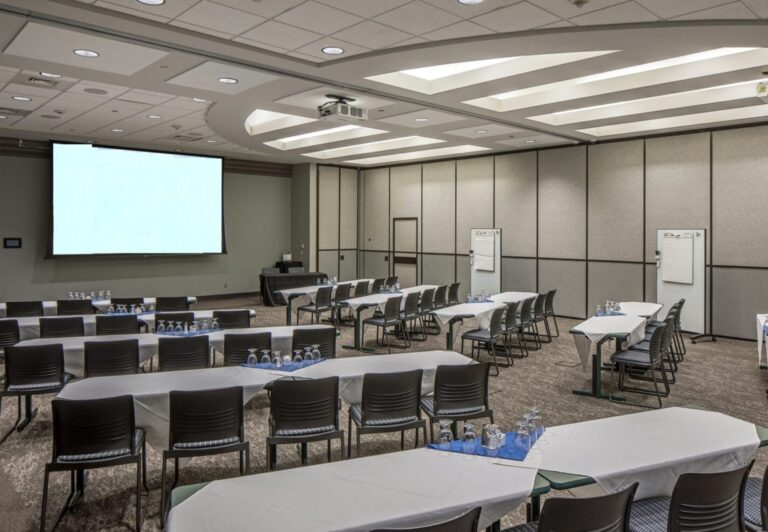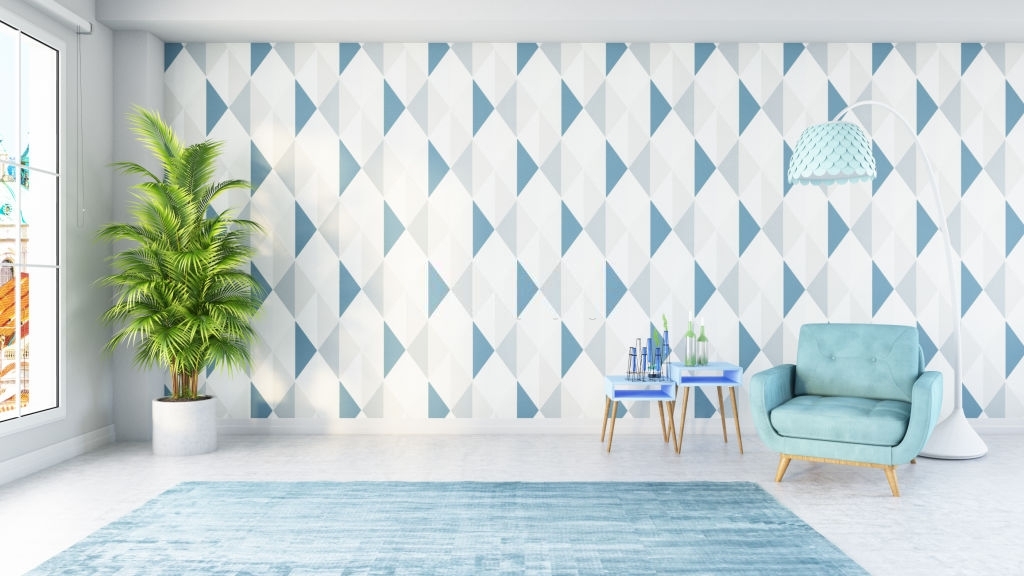
Nowadays, a popular technique for decorating living spaces is the combination of various types of wallpaper, which may differ in color, pattern, texture. This design allows you to create unique, inimitable interiors, hide existing flaws in the furnishings and change the geometric inaccuracies of rooms. In today’s article, we will look at how to combine wallpaper in the interior correctly and what you need to consider when choosing a material.
What to Consider?
Intending to decorate the room with a combination of wallpaper, you should choose the right basic tone. For example, if the room is small, it is better to give preference to light colors. It is also worth considering the location of the room’s windows relative to the cardinal points: if the room faces the south side, where there is enough sunlight, it is better to use cold colors, and for northern rooms – warm ones.
Large patterns and dark canvases are the prerogatives of large rooms; they can be present only as accents, highlighting a certain area in a small room. Also, with their help, you can adjust the space. For example, by pasting one of the walls with dark wallpaper or canvases with large prints, you can visually bring it closer. This technique is often used in narrow rooms – one of the short sides is decorated with a contrasting color – then the room takes on a more regular square shape.
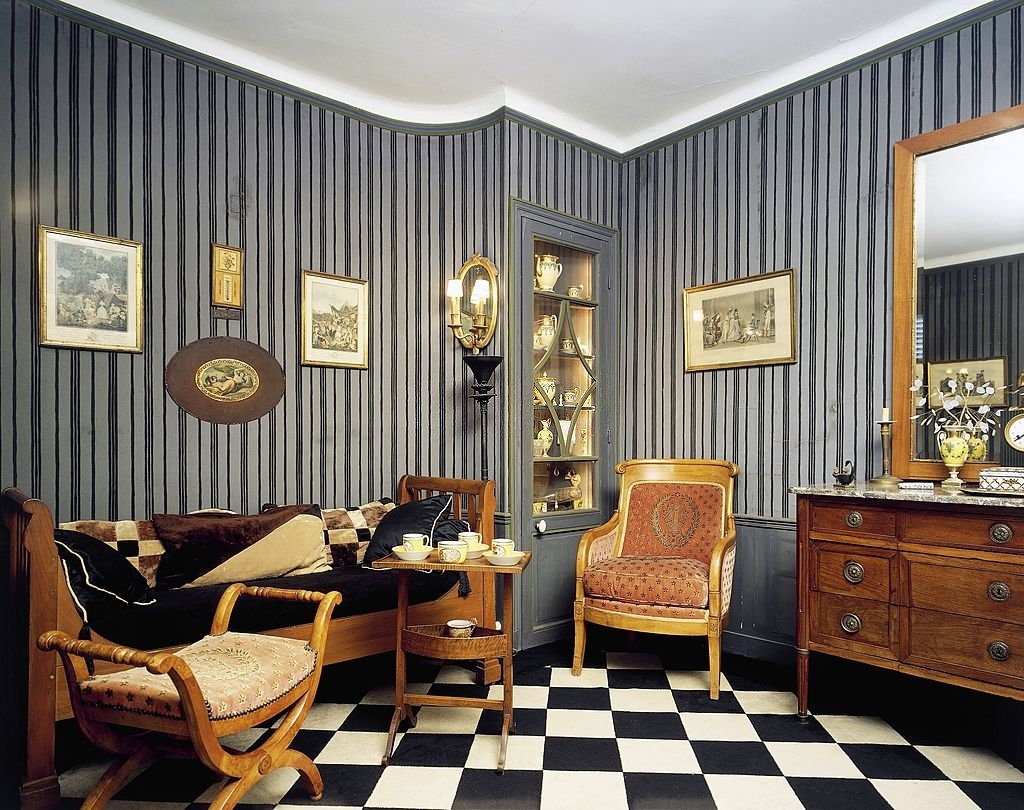
When choosing combinations, consider the influence of the location of the patterns on the visual perception of space – horizontal lines can expand the walls and reduce their height, so this is not the best option for rooms with low ceilings. Vertical lines, on the contrary, can “raise” the ceiling surface.
When combining, it is important to correctly transition from one canvas (or material) to another. There are several options:
- No transition – canvases are glued end-to-end, without any frames. For such a design, you need to align the walls carefully and, if possible, select canvases of the same thickness.
- Decoration with moldings – this method makes it possible to decorate the walls with original panels in a beautiful frame. This technique is often found in the classic style, although with the correct arrangement of materials, it is quite possible to decorate a modern interior in this way.
- The border decoration is a way of designating a horizontal combination of wallpaper, which brings a peculiar twist to the interior.
In today’s market of finishing materials, a huge assortment is provided, among which it is often not easy to choose the right wallpaper for combination. If you are at a loss with a choice, pay attention to ready-made collections, where the manufacturer offers already assembled canvases.
Ways to Use Wallpaper
Modern designers have developed many ways to combine wallpaper in the interior. These can be combinations of canvases in color, texture, patterns, or with other finishing materials. Various combinations help zone the room, highlight the dominant territory, adjust the space, and hide the flaws in the furnishings: to divert attention from outdated furniture or wall defects.
Color combinations
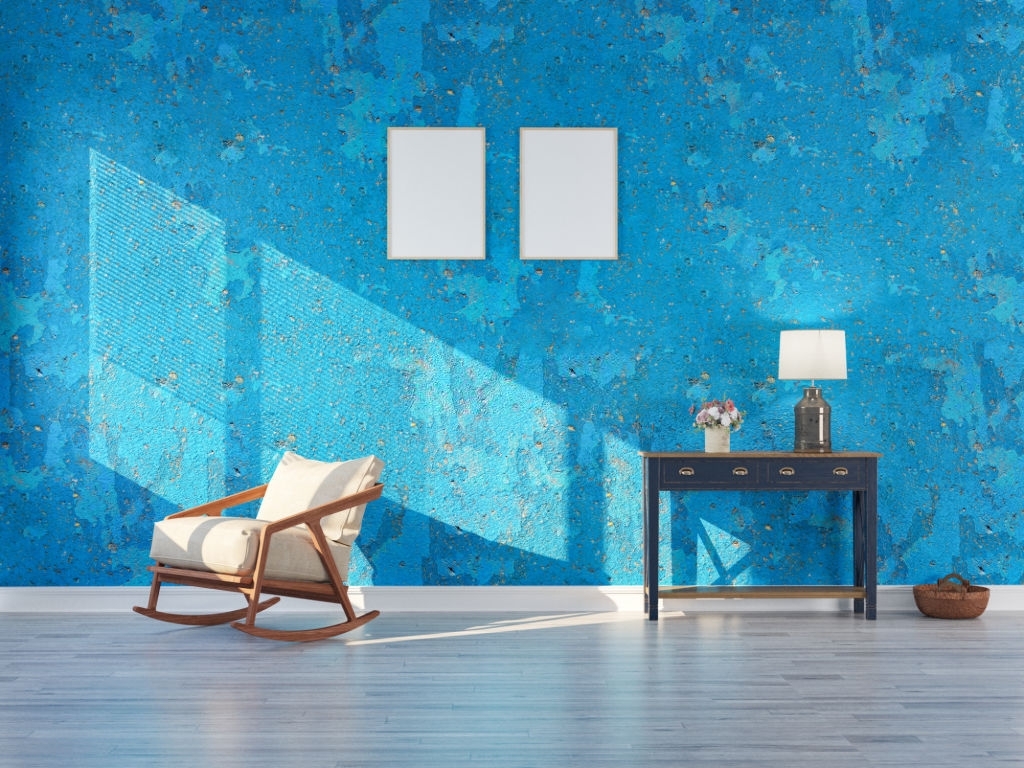
The choice of the color spectrum for the decoration of the room is the highest priority. You can combine wallpaper in several ways, which we will consider using the color wheel shown in the photo. The simplest and safest option is a monochrome combination, when one dominant color is chosen, which is complemented by its own shades that differ in saturation. As a rule, one of the zones is indicated with contrasting paints, or they are corrected, dividing the space.
The next color combination method is to use adjacent tonalities of the color wheel. In this case, the shades will smoothly flow into each other, creating a harmonious atmosphere.
For example, they simplify your task somewhat, and we immediately note that several colors combine perfectly with any others – these are white, black, gray (let’s call them universal). Beige tones behave well when surrounded by their own spectrum, universal tones, and also in combination with red, blue palettes. For green, the best allies will be yellow (orange), chocolate, golden. For blue, you can pick up red, green, universal tones. The red palette is considered the most contrasting. Therefore, combinations with white, yellow, or green help to dilute the brightness.
Combination of Different Textures
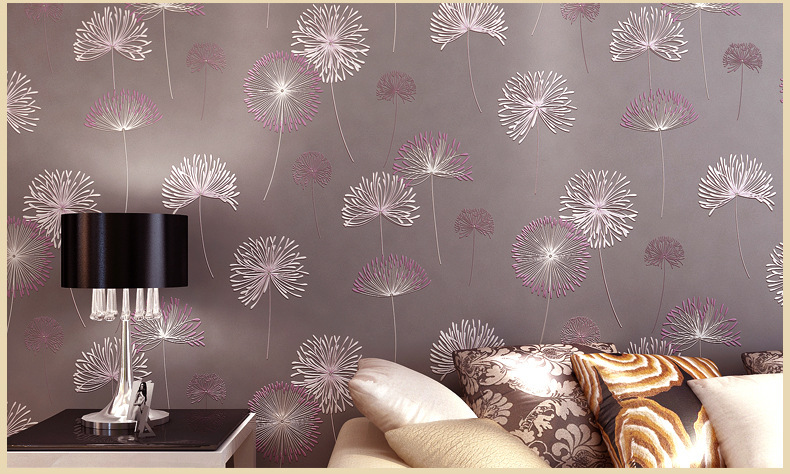
Modern wallpapers differ not only in a variety of colors but also in textures. Depending on the material of manufacture, they can be paper, non-woven, textile, fiberglass, metalized, liquid. The more expensive ones include leather, cork, and bamboo fabrics, which are the most environmentally friendly. Combinations of different textures create interesting architectural features in the interior. For example, they are often used to decorate door and window arches, designate corners, niches, columns, and wall decorative fragments framed by moldings.
Liquid wallpaper deserves special attention. If you look at it, this type of finish is very similar to plastering. However, the material is applied with a spatula, which allows you to create not only monotonous canvases. Moreover, the variety of color palettes and the possibility of using various decorative additives in the initial mixture allow you to create unique patterns and whole paintings that can become a real interior decoration against the background of a monochromatic finish.
Photo wallpaper can rightfully be called the most spectacular finishing material, which can decorate and radically change the perception of space. In particular, this applies to canvases with 3D images, which create the impression of the infinity of space, the feeling of being inside the picture. Wallpaper is placed on one of the walls, surrounded by a plain background finish. But it is worth considering that the real effect can be obtained only in a spacious room.
Combination of Plain Wallpaper
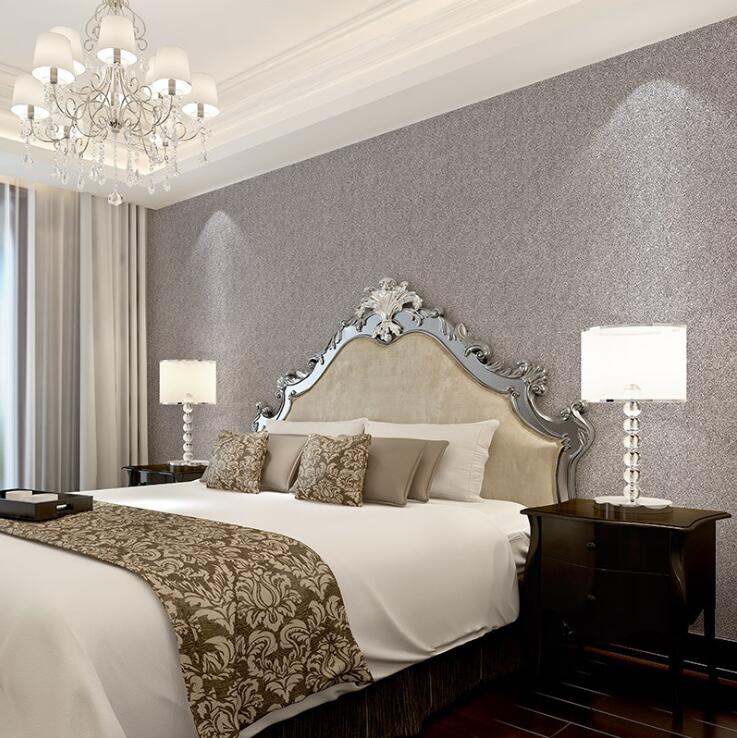
Monochromatic canvases are quite popular in modern interiors – they bring a certain severity and order to the atmosphere. Therefore they are more often used in styles such as minimalism, hi-tech, modern, etc. At the same time, combinations of different shades help to make accents and adjust the area.
When choosing a wallpaper, you should turn to one of the three options for combining colors that we have discussed above and decide on the dominant tone. For example, you can lighten darkroom areas with light wallpaper, where natural light is least received. Dark canvases bring the planes closer, so their placement will be appropriate on the short walls of a narrow room. So that the interior does not seem boring, you can combine smooth surfaces with embossed ones.
Combining Wallpaper with a Pattern
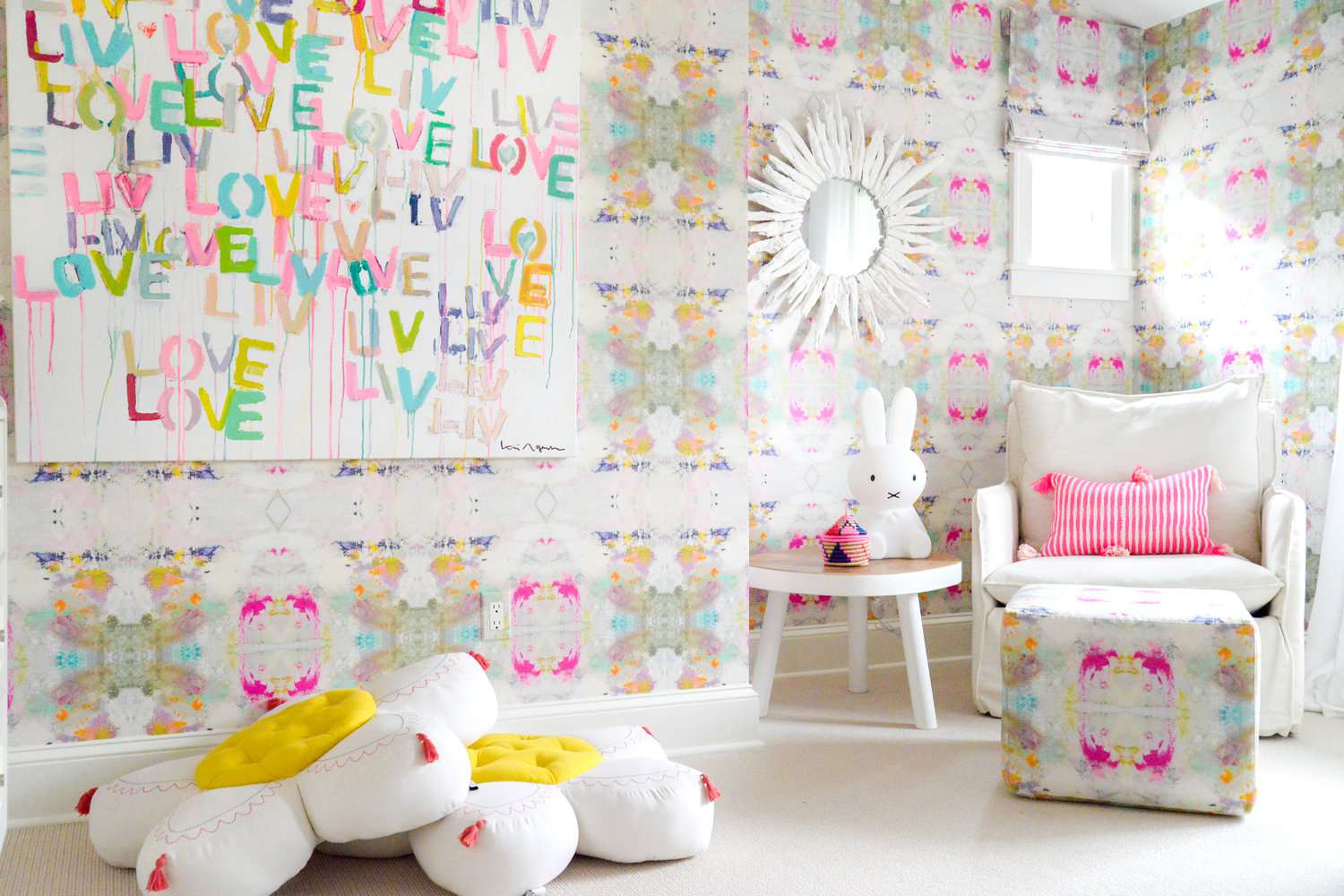
Wallpaper with prints is typical for many styles – they are widely used in classic, rustic, retro interiors. In this case, there are several options:
- Combination of plain and patterned wallpapers. Quite a popular combination technique, where canvases with a pattern decorate an accent wall, and plain canvases serve as a background. In this case, the drawing can be bright and expressive.
- Combination of wallpapers with different patterns. Choosing canvases with different patterns as a decoration, you need to choose a material from one color palette and, preferably, with a similar non-contrasting pattern. To prevent the interior from looking “clumsy,” you can choose the main pattern for several walls and one accent one, decorated with canvases with a different print.
- In the style of patchwork. This is perhaps the most difficult, but simultaneously, a spectacular combination when the wall is made of “scraps” of wallpaper with different patterns. It is important to correctly select the source material so that the colors and thickness of the canvases are combined. At the same time, the texture and texture should be different, and the drawing should be of high quality.
Use Wallpaper with other Materials
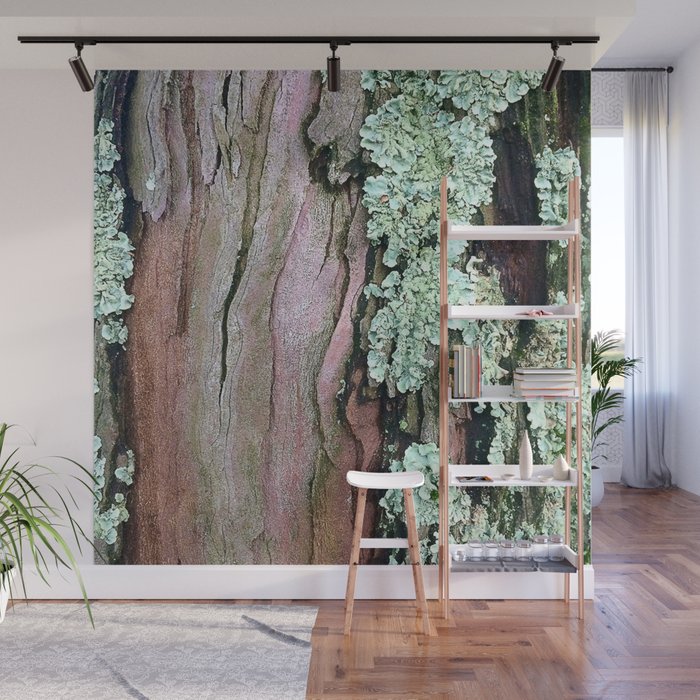
Wallpaper is wonderfully combined with any other finishing materials. This technique allows you to create a spectacular design and serve as a practical service. For example, in the kitchen, the dining area is decorated with wallpaper, less susceptible to dirt, humidity, and temperature extremes. The work area is decorated with ceramic tiles. The most polluted areas can be trimmed with PVC panels and the remote ones in the corridor with wallpaper or horizontal combination in the corridor.
A beautiful combination is obtained by combining wallpaper with paint. For example, in the bedroom, flat painted surfaces will perfectly complement the canvases with an ornate print at the head of the bed. Likewise, you can combine wallpaper with artificial stone in the living room, which is used to decorate corners, arches, niches, and accent walls by the fireplace or home theater.
In modern design, brickwork has gained great popularity, and a believable imitation created using PVC panels. For Provence, you can choose a design for a white brick, which will be combined with an elegant wallpaper print. However, for a brutal loft interior, darker brickwork and plain wallpaper are often selected.
Decorative plaster is also quite common in modern interiors. With its help, you can get a variety of smooth and embossed coatings. The material is the main background of the room, and the wallpaper is the accent area. Depending on the design concept, you can use plain canvases, wallpaper with a discreet pattern, or photo wallpaper.
The combination of wallpaper in the interior opens up many possibilities for creating a unique design with the necessary accents and functional areas. Our article, which contains many successful examples, will help you to verify this. Watch and be inspired!
